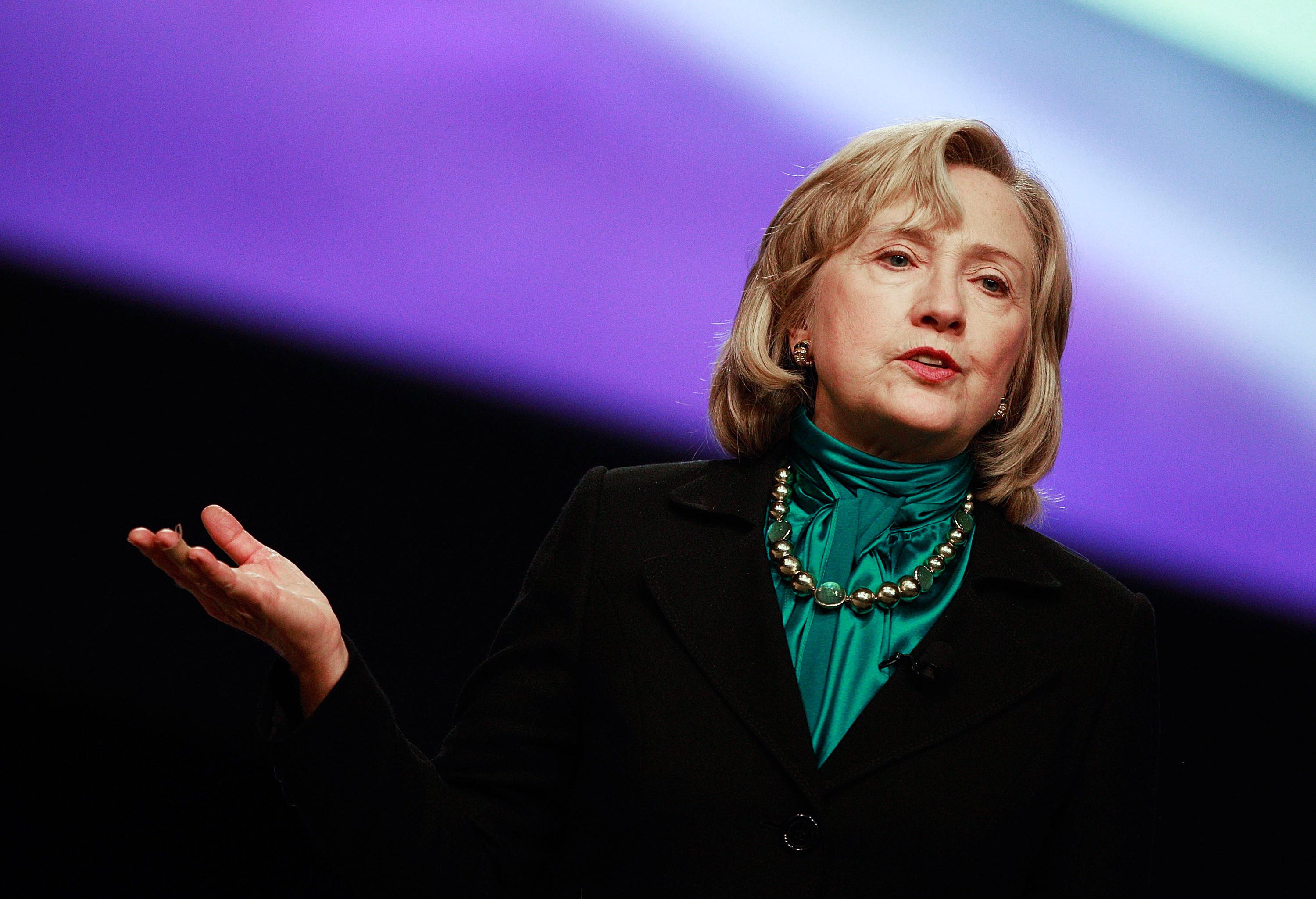Peter Nicholas and Carol E. Lee are out with a solid, scoop-laden piece about that most urgent of topics: who might be president 35 months from now. We learn that “some close to [Joe] Biden” say he was hurt that political allies, like Jim Messina, have climbed aboard Priorities USA as it’s become a stalking horse for Hillary Clinton. We learn that at least one highly quotable Democrat, former South Carolina Democratic Party Chairman Dick Harpootlian, told Biden he’d back him in a theoretical run. (This isn’t a stunner, as Harpootlian backed Obama in 2008 and spent his state’s primary campaign baiting Bill Clinton into making gaffes.)
What we’re told, but can’t prove, is that Hillary Clinton’s tyrannosauric polling leads are a cause of concern. To whom? Some Democrats.
[I]f Mrs. Clinton glides to the nomination without a serious challenge, some Democrats say, the party would be deprived of an important debate on issues that have split the party, including government surveillance, trade pacts and how best to keep Iran from developing a nuclear weapon…
Some Democrats maintain it isn’t even good for Mrs. Clinton herself to be seen as inevitable so early. She seemed similarly unstoppable early in the 2008 presidential race, only to find that voters cooled on her — a case, some analysts thought, of “Clinton fatigue.”
The first part of that sounds partly right, and the second is the sort of intriguing theory that can’t be proved. So, first things: Clinton has basically echoed the Obama administration’s positions on surveillance, trade, and Iran. Before this story ran, Politico’s Maggie Haberman reported on a letter Clinton sent to Carl Levin, endorsing the administration over hawk senators, rejecting new sanctions. The only space in a primary, vis-à-vis Iran, exists on Clinton’s right. Who wants to be there? On the NSA, Clinton’s tossed up some words about how we need a surveillance “discussion.” There’s lots of space to her left, ideologically, but how many votes? Most Democrats now support the surveillance state (as long as their party’s at the top of it).
Second things: this idea that Clinton “seemed similarly unstoppable early in the 2008 presidential race, only to find that voters cooled on her.” How does this continually get asserted as fact? You can only think it if you’re willing to ignore all poll data and invent a theory about “inevitable” candidates. Terry McAuliffe was an inevitable candidate in Virginia last year, scaring other Democrats out of a primary. He did OK. The challenge faced by a candidate with no primary is organizing and developing a GOTV operation. But the legacy of the Dean and Obama campaigns has created a permanent, ever-changing infrastructure for campaigners and organizers. Clinton can count on this, if she wants to use it.
That “if” seems to be her biggest/only problem. Amy Chozick identified it: Clinton attracts hangers-on and allies wherever she goes, and it’s not obvious that the most talented operators are going to end up in the right jobs. I guess that’s the sort of problem that would be identified in a primary, then fixed in a general election. But didn’t Clinton already lose a primary and identify the dead wood?
Yes. That’s not why some Democrats are fretting about 2016. Think about the last Democratic primary. In Clinton, you had a candidate with decades of friendships and associations (and some questions about electability that don’t exist now). In any other candidate, you—I mean “you, an ambitious Democrat”—had an opportunity to join the entourage and find a role in the next administration. If there’s no opposition to Clinton in 2016, you’re either sulking in the corner or joining the entourage at a lower status. See here the example of Messina, a campaign manager to a winning president who’s becoming the enforcer at a pro-Clinton super PAC. This, more than any considerations by voters, is what will drive Clinton Fatigue stories.
